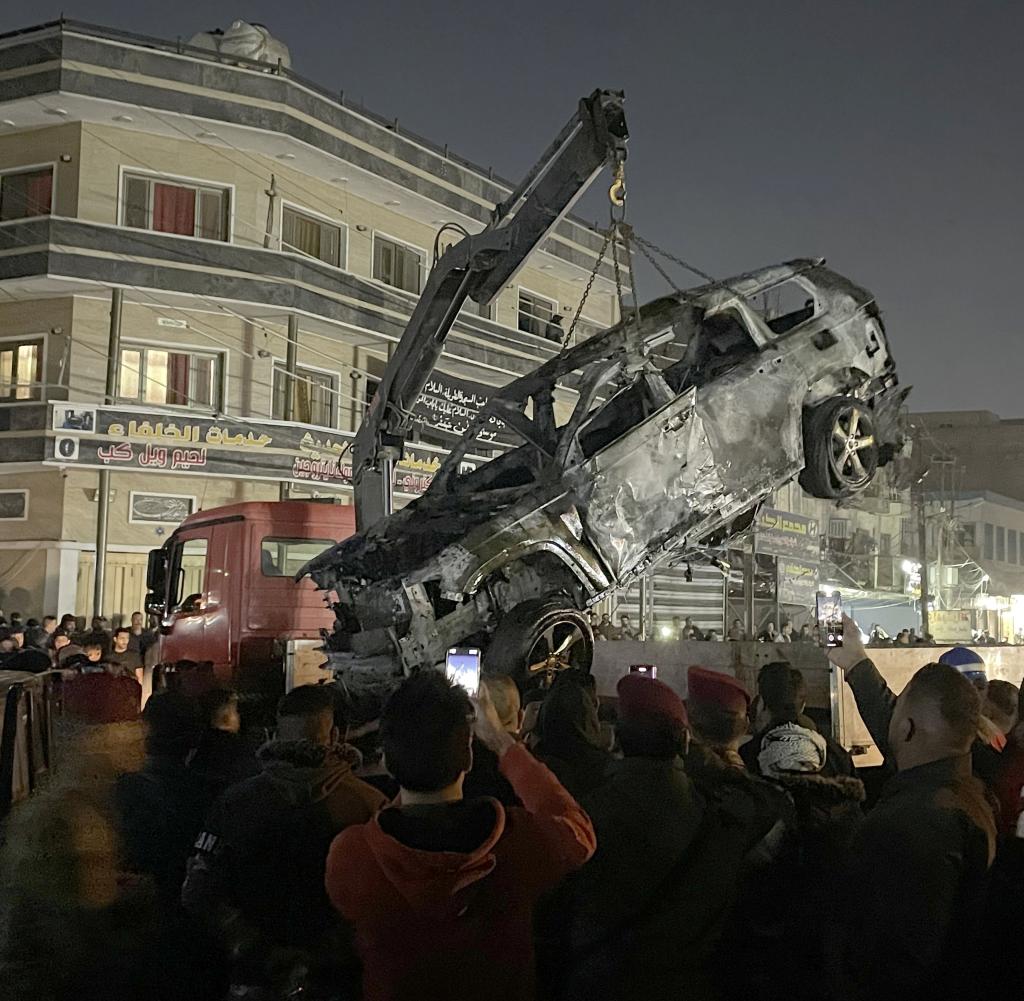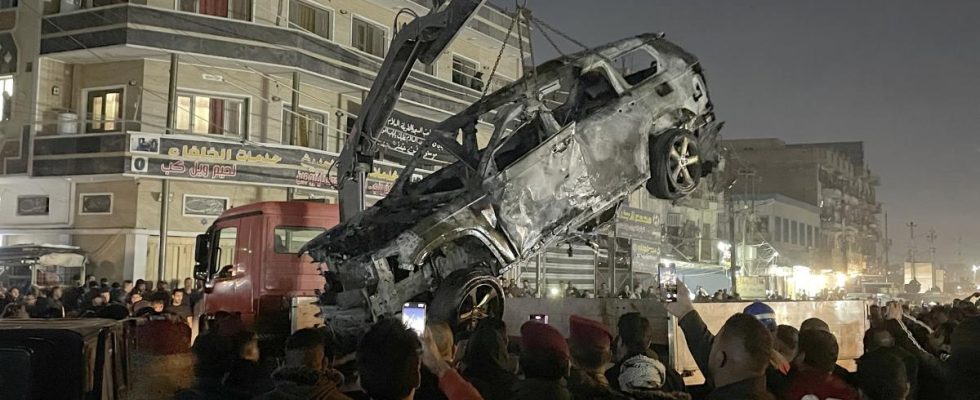Pro-Iranian militia commander killed in attack in Iraq

A burned-out car is lifted by a crane. The commander is said to have sat in this car
Source: picture alliance/Anadolu/Murtadha Al-Sudani
Three members of a powerful Iranian-backed militia have been killed in a US-led drone strike in the Iraqi capital Baghdad. One of those killed is said to be Wissam Mohammed “Abu Bakr” al-Saadi, a high-ranking commander.
bA US drone strike on a car in Baghdad has killed a high-ranking commander of the powerful Kataib Hezbollah militia. The US military said he was involved in and involved in the “direct planning” of attacks on American troops. There were conflicting reports about the number of people killed in the attack. US officials spoke of one death and emphasized that no civilians were harmed. However, two representatives of Iranian-backed militias in Iraq said there were three deaths. One of them is Wissam Mohammed “Abu Bakr” al-Saadi, the Kataib Hezbollah commander responsible for operations in Syria.
The militia later confirmed his death was caused by a “bomb attack by American occupation forces.”
The US attack hit a main street in the Mashtal district in the east of the Iraqi capital on Wednesday evening. A crowd then gathered at the scene while rescue workers searched the rubble. Security forces later cordoned off the heavily guarded Green Zone, where a number of diplomatic missions are located. Calls to storm the US embassy in Baghdad had previously made the rounds on social media.
Growing tensions in the region since the beginning of the Gaza war
The US regional command Centcom said there was “currently no evidence of collateral damage or civilian casualties” from the attack on the senior member of Kataib Hezbollah. The US would “not hesitate to hold accountable those who threaten the security of our troops.”
The US drone strike came amid growing tensions in the region since the start of the Gaza war, which was triggered by the terrorist attack by the Islamist militant Hamas in southern Israel on October 7. Recently, the American military attacked dozens of facilities in Iraq and Syria that were used by Iran-backed militias and the Iranian Revolutionary Guard.
The US action was described as retaliation for a drone strike that killed three US soldiers in Jordan in late January. The US has blamed the Islamic Resistance in Iraq group, a broad coalition of various militias backed by Iran. US officials subsequently said they particularly suspected Kataib Hezbollah of leading the attack in Jordan.
Against the backdrop of the Gaza war, the “Islamic Resistance in Iraq” has repeatedly claimed attacks on bases used by the US military in Iraq and Syria and stated that these were retaliation for the US’s support of Israel. Since October 18, there have been nearly 170 attacks on US troops in Iraq and Syria, and the drone strike in Jordan was the first attack to claim the lives of US troops. It was only on Sunday that the “Islamic Resistance in Iraq” claimed responsibility for a drone attack on a base in eastern Syria that was also inhabited by US soldiers, in which six fighters from the Kurdish-led Syrian Democratic Forces (SDF) were killed. The SDF is allied with the USA.
Observers assume that the latest US attack on the militia commander will further strain the already tense relations between Baghdad and Washington. The Iraqi government was not informed in advance of Wednesday’s military action, US officials said.


